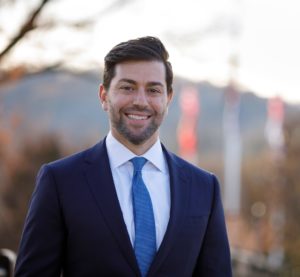A Republic, if you can keep it—Benjamin Franklin

When Alexis de Tocqueville toured our young nation in 1831, American democratic participation was nothing short of revolutionary to his European eyes. He noted, “the people reign over the American political world as God rules over the universe.” And while it should be noted that, due to discriminatory restrictions in the franchise we thankfully recognize today as unjust, a far lower percentage of the total population actually voted then than they do today, it is also fair to say that if the people still reign as a god today, we’re an inattentive, absentee god, at best.
By international standards, our roughly 50 percent voter participation rate is weak. Perhaps that weakness is a historical legacy of voter suppression; perhaps it’s a sign that our government offers too few solutions to the problems that vex us; perhaps it’s both. Indeed, in the fifty-seven years since Martin Luther King Jr. uttered these worlds, we might ask whether much at all has changed:
We cannot be satisfied as long as a Negro in Mississippi cannot vote and a Negro in New York believes he has nothing for which to vote. No, no, we are not satisfied, and we will not be satisfied until “justice rolls down like waters, and righteousness like a mighty stream.”
I believe, however, that the best way for us to ensure a person has something “for which to vote” is, first, to ensure that more people are incentivized and able to cast a vote that counts. Below, I offer a few observations and proposals to increase the scope of our democracy, which, I hope will also increase its depth and vigor. And, if elected to Congress in New York’s 17th District, I will work tirelessly to see these provisions written into law, so that nothing, not even a pandemic, can frustrate our democracy. The below ideas are not the only necessary or good ideas for improving the vigor of the democratic process, but they are a few that appear most achievable and least affected by the spate of recent Supreme Court precedents that have harmed our democratic process.
First, to get more people voting, we should offer a $50 refundable tax credit to everyone who votes in a federal election. That tax credit would be progressive, because the $50 would represent a greater proportional boost to working and middle class voters than to the wealthiest, while also addressing the economic burden that taking the time to vote imposes on hourly workers and those forced to extend childcare to get to the polls. I will proudly co-sponsor legislation for such a credit, which would force my Republican colleagues publicly to choose between their stated love of reducing our tax burden and their unstated but apparent love of suppressing voter turnout.
To further boost voter participation and turnout, we must also make Election Day a federal holiday, and join the more than 80 percent of other OECD countries that hold elections on weekends or national holidays. Additionally, we should provide more funding to states like New York to make voting registration automatic, giving voters the opportunity to “opt out” if they wish to unregister rather than the more cumbersome “opt-in” process we currently have. Republicans and other critics will argue that such laws will lead to voter fraud, but extensive research debunks that claim.
We should also institute early voting in as many jurisdictions as possible. By spreading out elections over periods of a week or more rather than just a single day, we permit people the flexibility they need to participate more fully, while reducing the risk of overcrowding that is not only inconvenient, but even dangerous in these times of public-health crisis. Such a process would also give more time for those with questions or difficulties affecting their registration and ballot-validity to pursue legal redress with judges and other legal officials.
We should also take bold steps to enhance the integrity of our elections. One way is by setting up independent redistricting commissions in each state to minimize the impact of partisan politics on how we draw state and congressional boundaries. Currently, eight states have commissions with primary authority over the redistricting lines. The Supreme Court’s 5-4 decision that federal judges cannot oversee state gerrymandering will lead to election bias unless we take the map out of the hands of partisan state legislatures.
Lastly, we must abolish the Electoral College, either through a constitutional amendment or through the National Popular Vote Plan, which I’ve previously published an academic paper on. Such a plan would allow states to agree with one another to cast their electoral votes for the winner of the national popular vote, so that the Electoral College would become functionally irrelevant. Such a change would do a lot to engage citizens in the vast majority of states (including California, Texas, and New York) that presidential candidates now safely ignore, while returning us to the basic principle that every person’s vote should count.
If we can begin to unclog the arteries of democracy in these and other ways, perhaps we can come nearer to Dr. Martin Luther King Jr.’s other vision: a society that offers good people something “for which to vote.”
Adam P. Schleifer is a former New York State banking, insurance, and consumer protection regulator and federal prosecutor; he is a candidate for Congress in New York’s 17th Congressional District.


